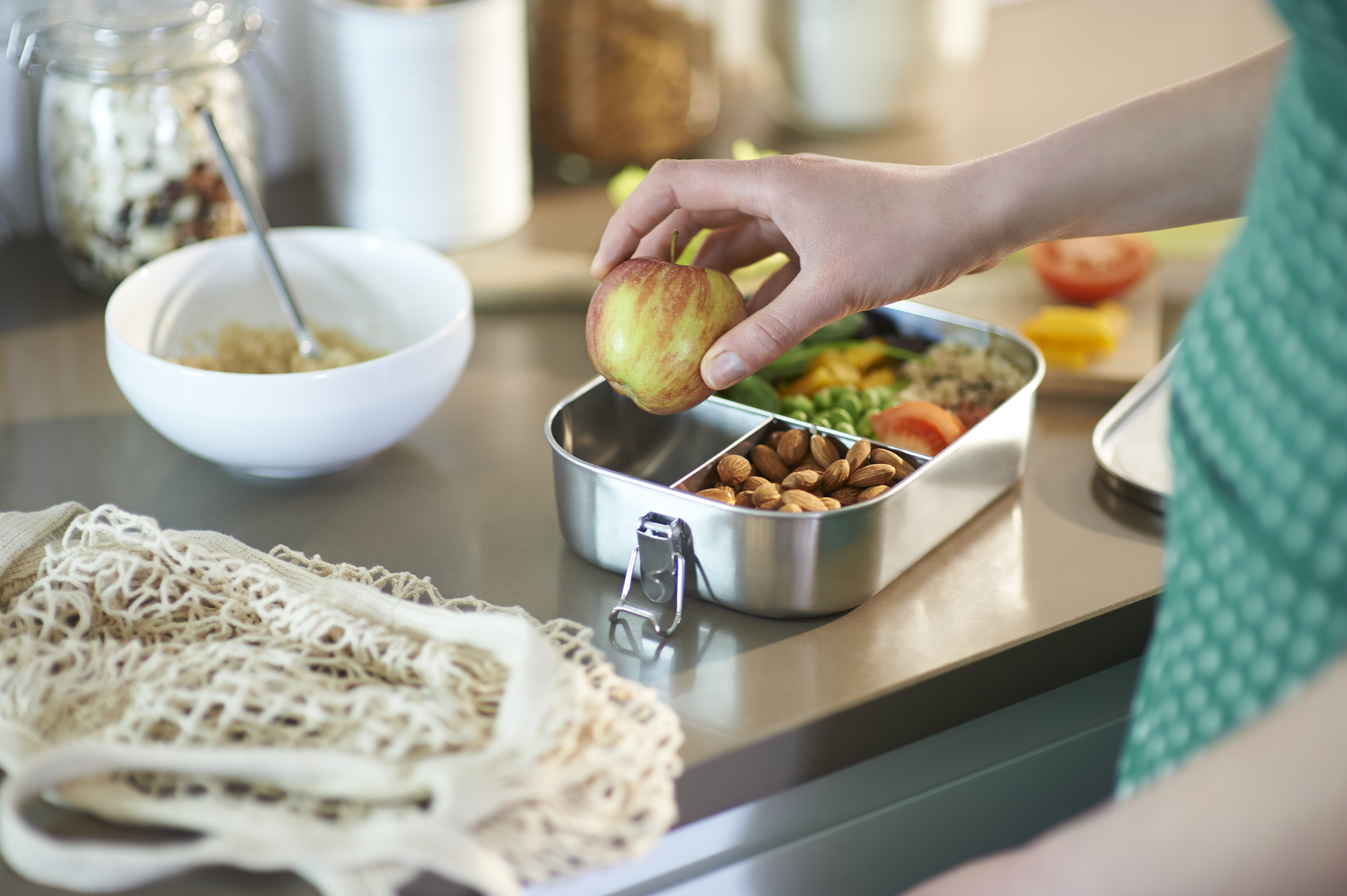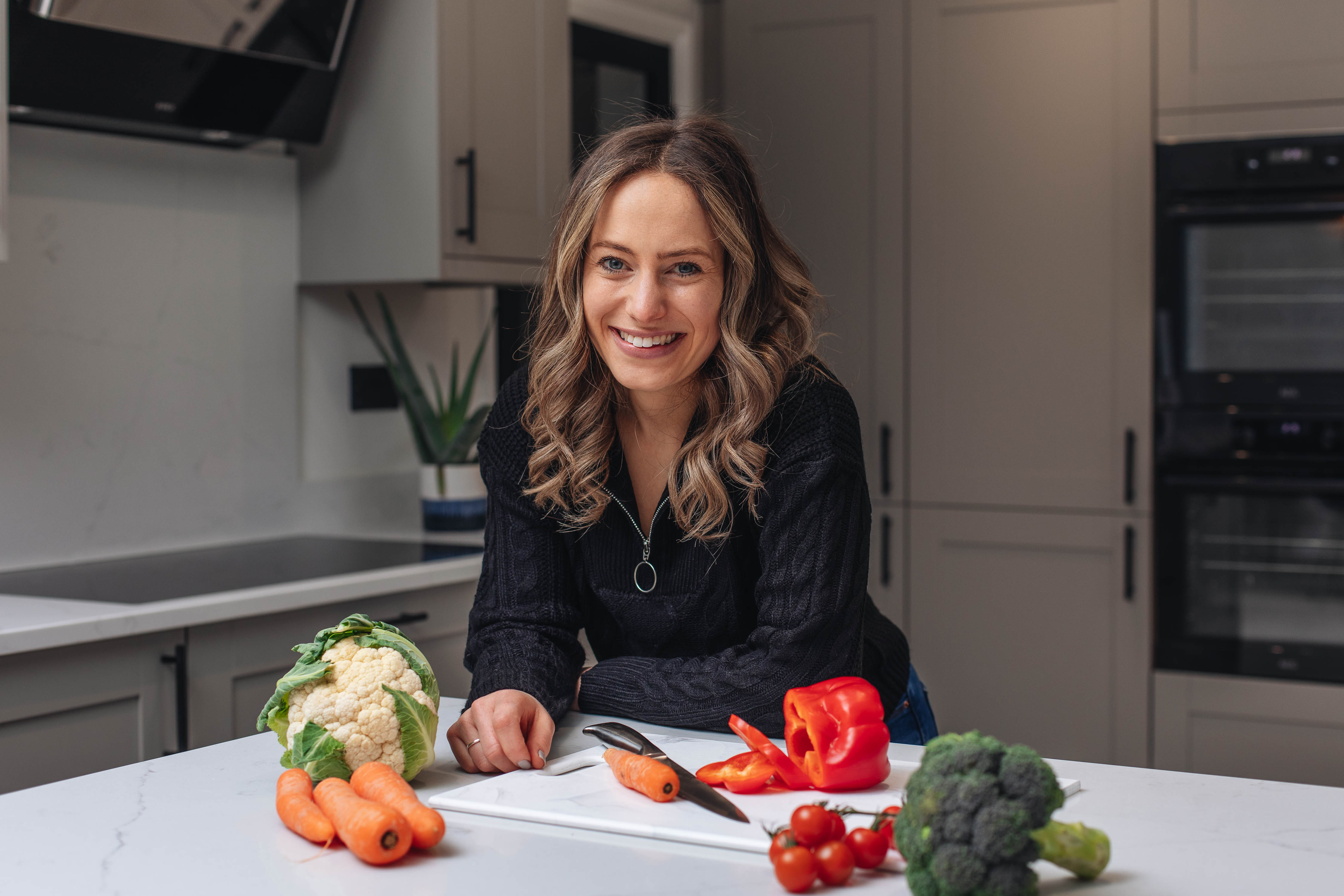What to eat before an exam: 8 foods that can boost your child's performance, recommended by a registered nutritionist
If your kids are about to sit their exams, now's the time to make sure their brains are well-fed. Follow these tips to help them do their best!


We've asked a registered nutritionist what to eat before an exam, so you know what the best foods for your child are when they've got tests coming up.
If your child is taking exams this year, you probably want to know how you can help them deal with exam stress as well as how to support them on A-level results day. One of the major ways you can make a difference is by helping them fuel their body to keep them energised, motivated and focussed, they can achieve the best possible marks come A level results day.
And just as a weight lifter needs a different diet from a long-distance runner, teenagers sitting exams need a different diet from other kids, to fuel all that study time. Registered nutritionist Jenna Hope tells us, "The brain utilises around 25% of our total energy intake, therefore it’s vital to fuel it adequately when studying for exams." She adds, "Ensuring a steady flow of glucose can be helpful for supporting concentration and energy levels whilst studying."
We've taken a look at which foods can best ensure your child's brain receives a constant and steady stream of energy - helping them concentrate as well as possible for as long as possible - so you can prepare the best exam diet for them.
Best 'brain foods' for studying towards exams
- Oily fish such as sardines, salmon, tuna, pilchards, herrings or mackerel, for essential fatty acids
- Shellfish, like prawns and shrimps for zinc
- All red meat and poultry for protein, iron and B vitamins
- Wholegrain cereals for B vitamins and slow-release energy
- Nuts and seeds (for example, pumpkin, sunflower and sesame seeds, brazil nuts, walnuts and peanuts) for essential oils, zinc and selenium
- Fresh fruit, salads and green vegetables for vitamins C, A and folic acid
- Liver for vitamin A, iron and B12 (not to be taken by pregnant women)
- Rosemary, sage, basil and ginger all enhance brain function
Jenna tells us, "Where possible, opt for complex carbohydrates such as sweet potatoes (with the skins on), oats (such as porridge or overnight oats), wholegrain toasts and beans and pulses (roasted chickpeas can make for a delicious snack)."
She adds, "Omega-3 is also key for enabling neurons to communicate in the brain and supporting memory consolidation. It’s recommended to consume two portions of oily fish per week or one portion of a plant source of omega-3 per day. Plant sources include flaxseed, walnuts and seaweed."
Eating walnuts has been shown to support brain health and improve concentration, as demonstrated by a 2020 study published in the scientific journal Nutrients. Meanwhile, anthocyanins - which can be found in blueberries, blackberries, cherries and beetroot - increase blood flow to the brain, which can be beneficial when studying towards exams.
GoodtoKnow Newsletter
Parenting advice, hot topics, best buys and family finance tips delivered straight to your inbox.
You can also help your child study by limiting refined sugar. It might be tempting to offer up sweets, chocolate or energy bars to keep them going, but in reality, anything else with a high sugar content will give your child a short-term boost, followed by a sudden drop in blood sugar. The result is a roller coaster of brain function that can seriously interfere with concentration, memory and performance.
The sugars your child's brain needs should instead come mostly from unrefined starches like wholemeal bread, wholegrain cereals, oats in porridge or muesli, rice, beans, and pasta. If they aren't used to eating this type of food, they might not welcome the change - especially at such a stressful time. If they're really resistant, try to incorporate a few small changes such as changing their snacks or making sure they take a daily vitamin pill.
What to eat before an exam
Even if your child normally skips breakfast or avoids eating when they're feeling nervous, make sure they still take the time to eat something. Their brain will need the energy from food to work efficiently, and eating before an exam will ensure your child's mental focus is kept on the exam and not on their hunger.
Meals rich in starchy foods like pasta, rice, bread, cakes and biscuits trigger the release of the hormone serotonin from the brain, which is relaxing and prepares you for sleep. Therefore, these are an ideal evening meal for the night before an exam, but not great at lunchtime. High-protein foods like meat, fish, poultry, cheese and eggs stimulate the brain, so these are better to eat at lunchtime.
Nutritionist Jenna explains, "The night before you want to ensure you’re consuming a well balanced meal. Salmon, sweet potatoes and some sauteed greens would be a great source of omega-3, carbohydrates and protein to help support memory consolidation and brain cell health."
In the morning, Jenna suggests opting for a source of slow-releasing carbohydrates with protein. Porridge topped with nut butter and berries or eggs on wholegrain tast with a side of tomatoes are great options.

Can eating certain foods really improve exam performance?
In order for your child's brain to do its job efficiently, they must be eating foods that will fuel their brain with nutrients at regular intervals - at least every three hours. Don't let them go too long between meals and provide them with healthy, nutritious snacks like fruit, nuts or wholegrain cereals.
As Jenna Hope explains, "Ensuring you’re fuelling your brain with the nutrients it needs to function optimally is vital for supporting brain cell function and memory consolidation along with concentration. However, it’s important to eat a well-balanced nutritious diet regularly rather than relying on one or two nutritious meals before an exam. It’s what you do in the long-term which can really add up."
If you're worried about your teen's stress levels through exam season, check out these four expert tips for guiding them through. You could teach them these relaxation techniques for stress too.

Jenna Hope is a Registered Nutritionist with an undeniable passion for making nutrition smarter, clearer and simpler. She provides quick, easy, nutrition advice which you can implement everyday. Founder of Nutrition consultancy firm Jenna Hope Nutrition, Jenna works closely with individuals, corporate clients and brands to implement smarter strategies for nutrition and to support health and wellbeing for the long-term.

Ellie is GoodtoKnow’s Family News Editor and covers all the latest trends in the parenting world - from relationship advice and baby names to wellbeing and self-care ideas for busy mums. Ellie is also an NCTJ-qualified journalist and has a distinction in MA Magazine Journalism from Nottingham Trent University and a first-class degree in Journalism from Cardiff University. Previously, Ellie has worked with BBC Good Food, The Big Issue, and the Nottingham Post, as well as freelancing as an arts and entertainment writer alongside her studies. When she’s not got her nose in a book, you’ll probably find Ellie jogging around her local park, indulging in an insta-worthy restaurant, or watching Netflix’s newest true crime documentary.